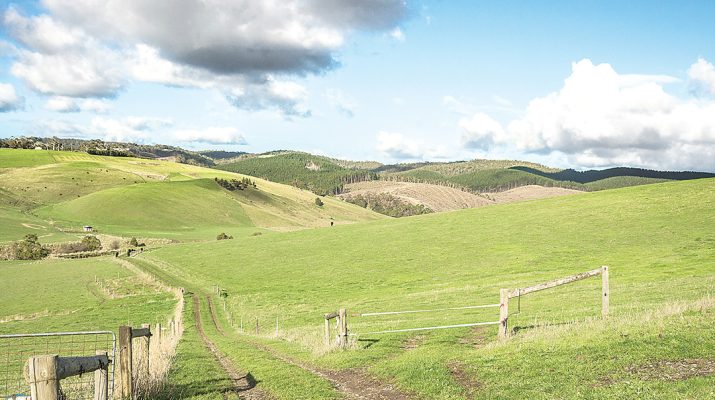Philip HOPKINS
AN unfair manipulation of property and farm valuations will be the result of the federal government plans to raise the tax on superannuation accounts above $3 million and tax unrealised gains, according to the Leader of The Nationals, David Littleproud.
Mr Littleproud, interviewed on Sky News, agreed with this criticism by one of Australia’s biggest auditors, ASF audits. “That’s what’s going to happen if you’ve got an unfair tax. What happens is that people who are caught up in this are going to try whatever they can to get themselves out of it,” he said.
“When you think about farmers, they’ve bought large capital assets costing millions of dollars and look to actually pass that on to their kids through succession through their superannuation fund. And this is a vehicle they’ve done for some time to protect the family’s assets and to make sure that young people can come back.
“And that’s when we’ve got an ageing demographic of farmers. We actually do need young people to come back. The biggest inhibitor is to buy land because it’s the most expensive. So what happens is that a lot of this land’s already been put in self-managed super funds so that the family can have a succession plan.
“So what’s going to happen is that you can have farmers that have tens of millions of dollars worth of property in, in their self-managed super fund, they pay a rent back to that every year. But if there’s no crop, if they spend hundreds of thousands of dollars on a crop and then the rain stops, they have no cash flow to pay the tax.
“What they’re doing now is they’re going to have to get it revalued and all get revalued every year. There could be hundreds of thousands of dollars every year just in valuation costs. So the government has created this mess without clear lines of where it’s going to go. And if they have to value a property every year, that could be in the hundreds of thousands of dollars every year.
“Then if you have a failed crop and you don’t have the cash flow to pay for the tax, you’re actually going to have to sell the property. Some farmers are already getting out, they’re actually transferring some of their property back across into other entities. But that comes at a great cost as well. That comes with stamp duty costs.”
Mr Littleproud said the Treasurer, Jim Chalmers, and the Prime Minister, Anthony Albanese, had not thought this through. “They are deterring young farmers coming back into the industry. They’re tearing up the livelihoods of many farmers across the country in a time when they can at least afford it in drought and when we’ve had floods,” he said.
“This is a government that’s out of touch and not understanding the consequences of the policies that they’re bringing through. We should be staying out of the lives of our farmers, our business people, they’re the ones who create jobs.
“But it’s not just farmers, it’s actually small businesses are going to get caught up with this. They might have their commercial property in a self-managed super fund, but this is where governments should not overreach.”
Mr Littleproud said the principle that “we should always walk away from” was taxing unrealised capital gains.
“Once you go down this slippery slope of taxing unrealised capital gains just on super funds, you’ll have a Labor government that opens up the floodgates for other parts of the economy, whether that be your shares, whether that be your house, whether that be anything else,” he said.
“Some will simply say, ‘I might as well cash all my chips in now, put it into my self-managed super fund as cash and I can get out and I can go and live at the coast. The problem is we haven’t got young people coming through taking over with the expertise to be able to build them up. And this is the challenge that Anthony Albanese is creating with this tax that has no principle to it whatsoever. But the practical reality has severe consequences for our farmers.”

